
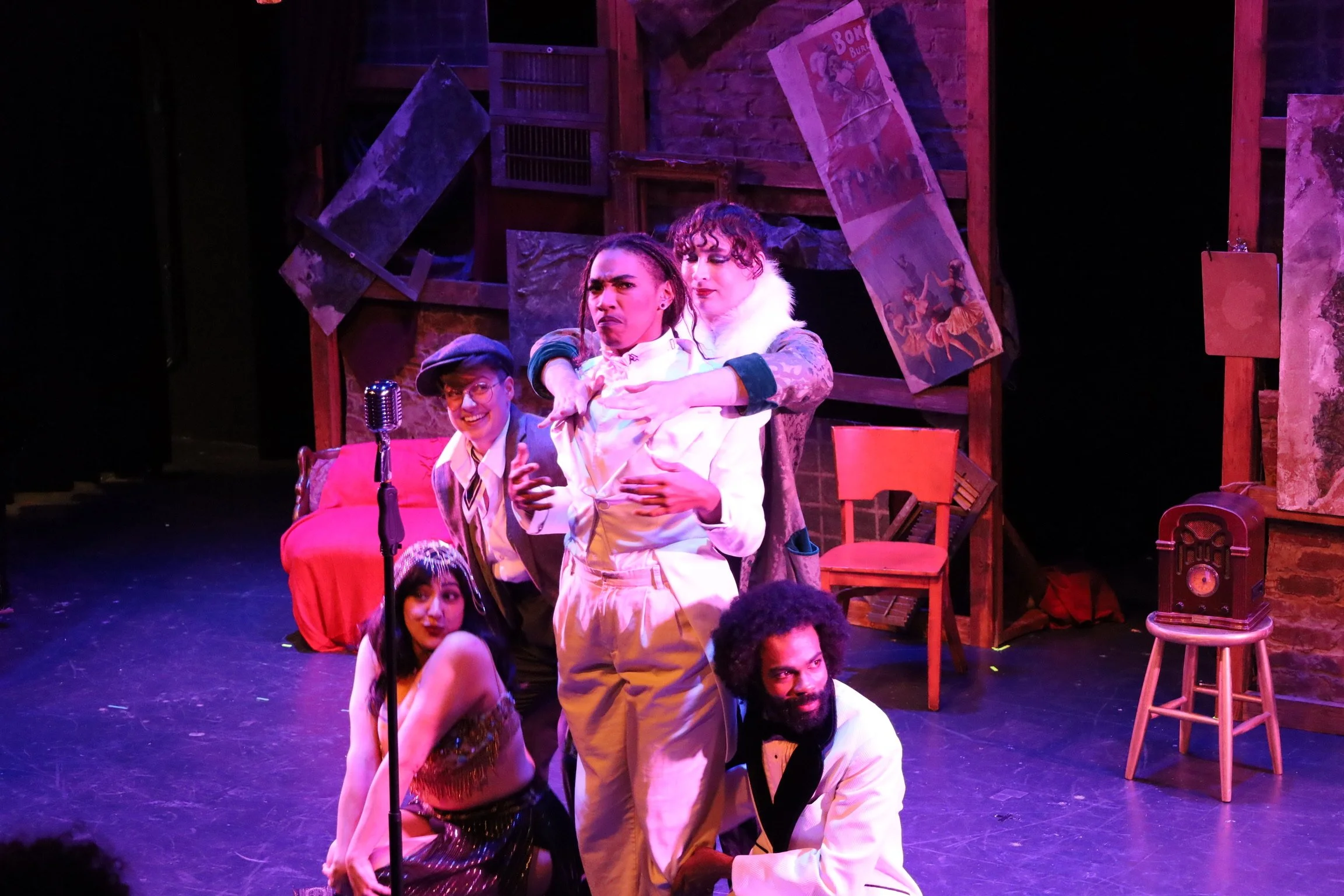
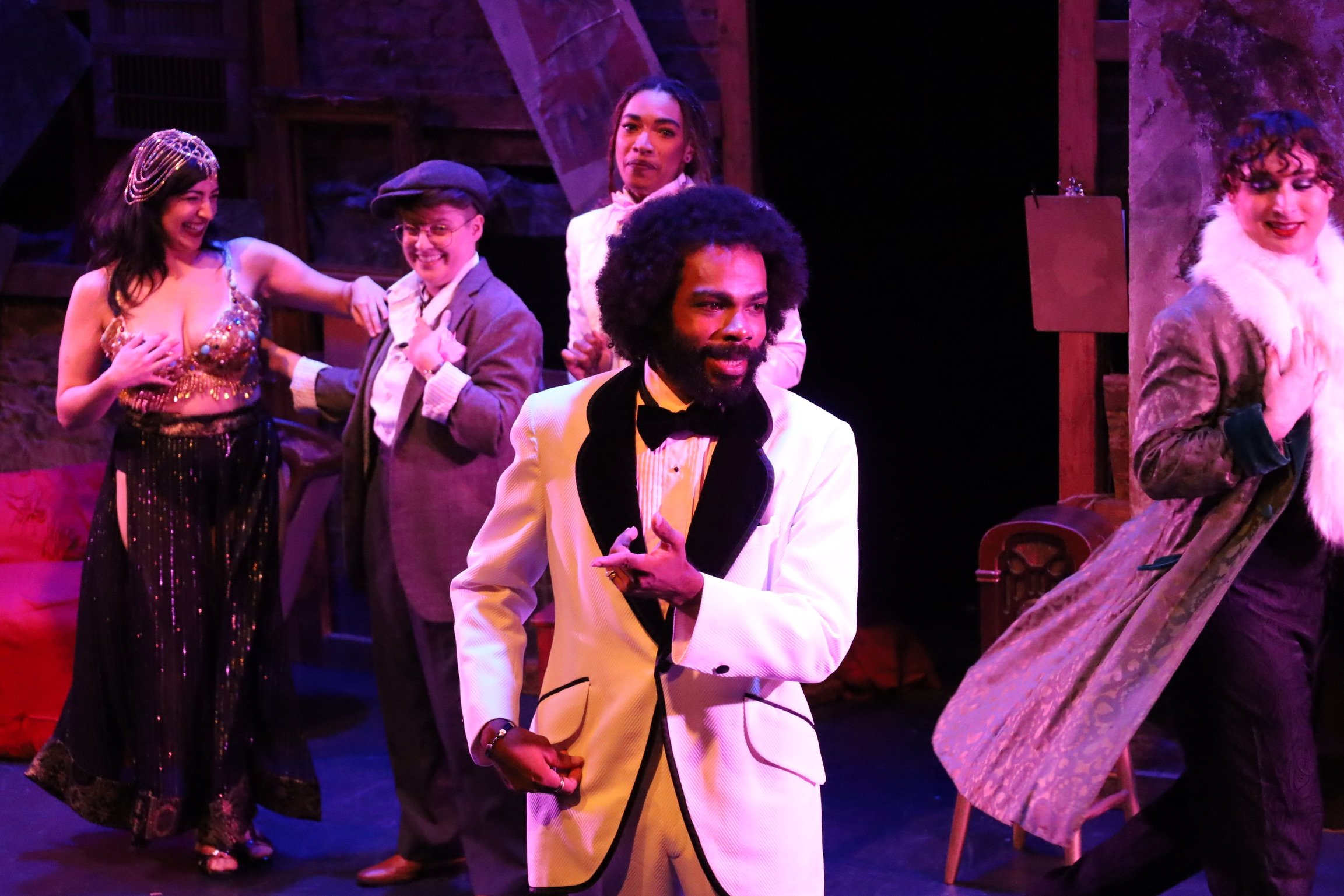
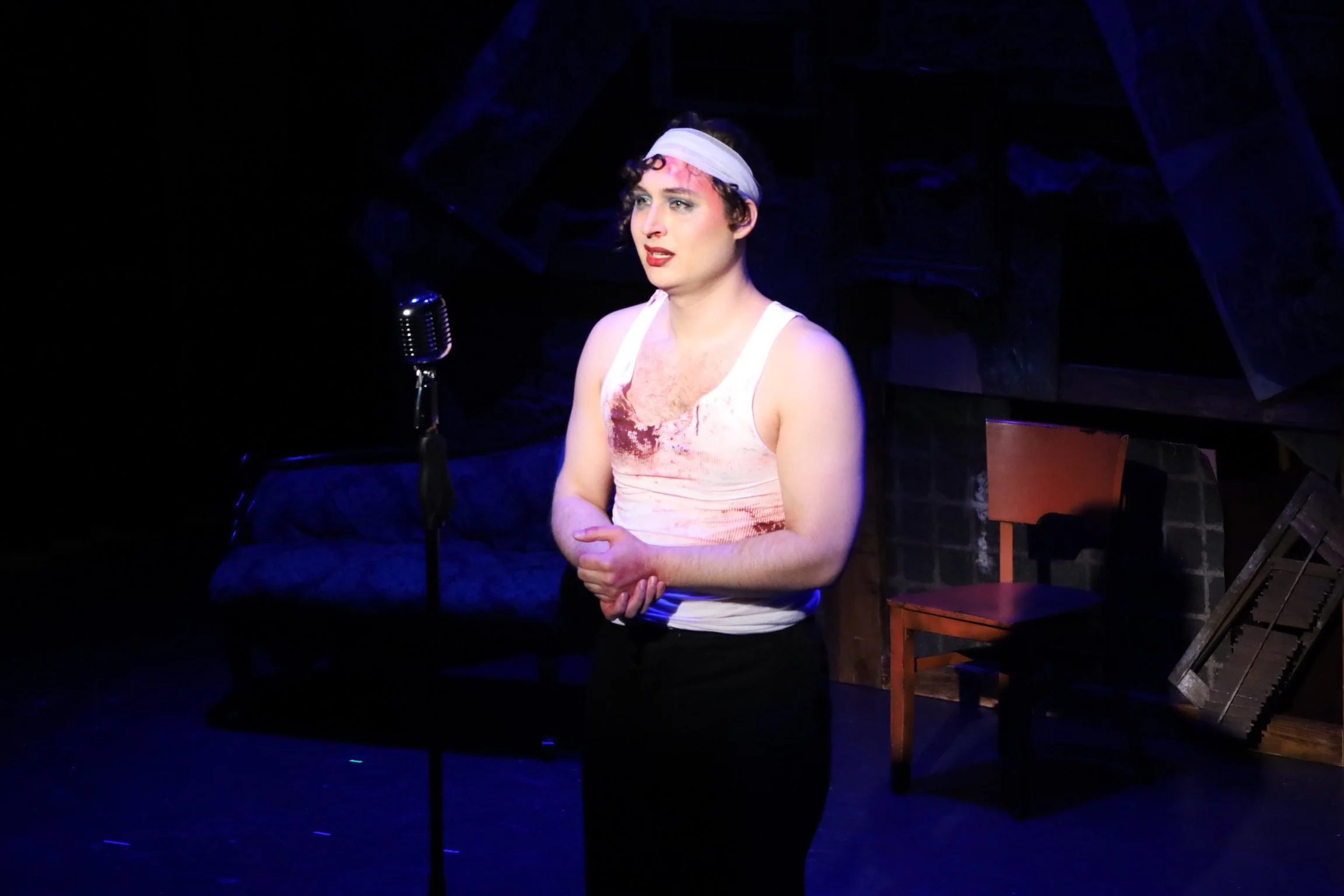
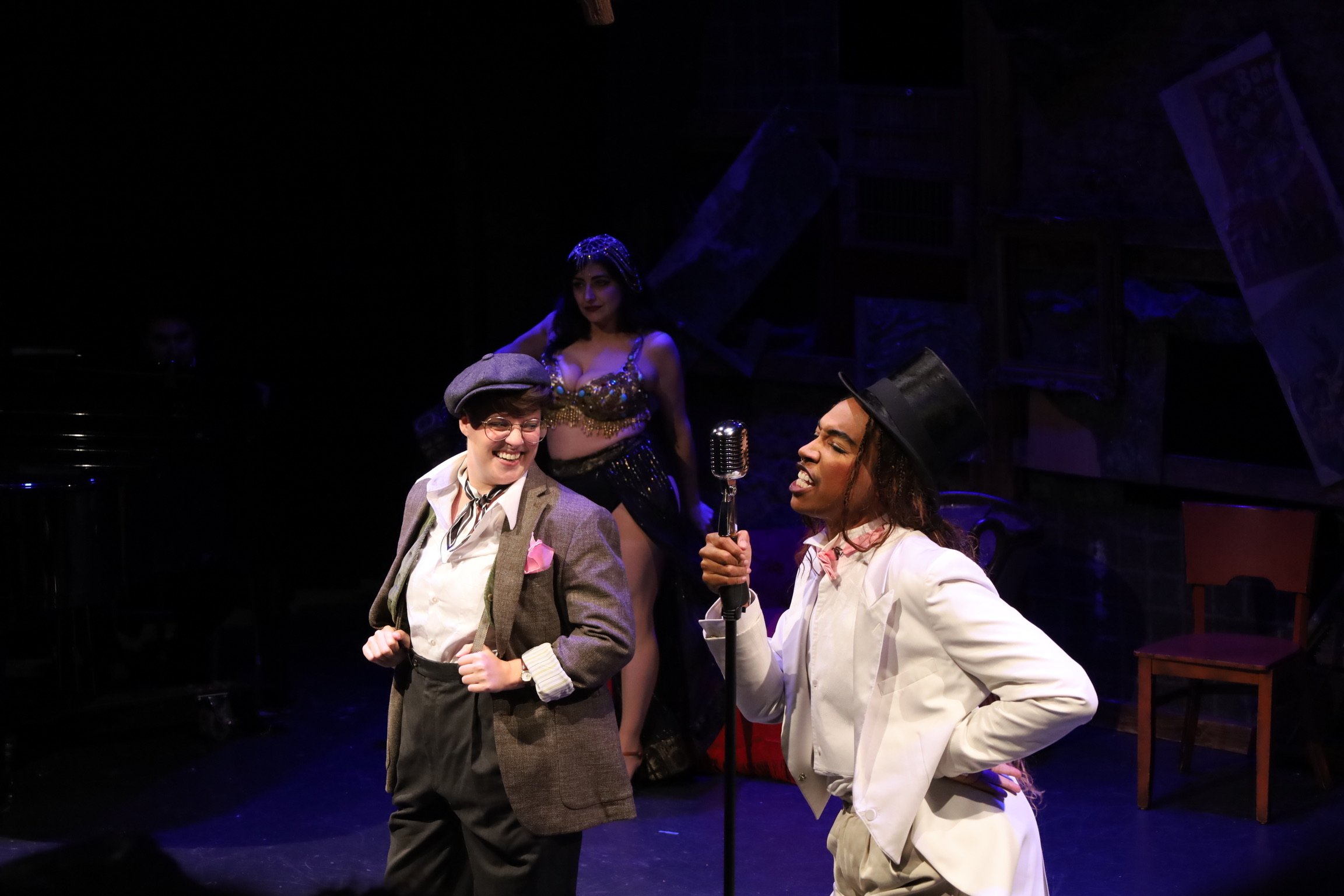
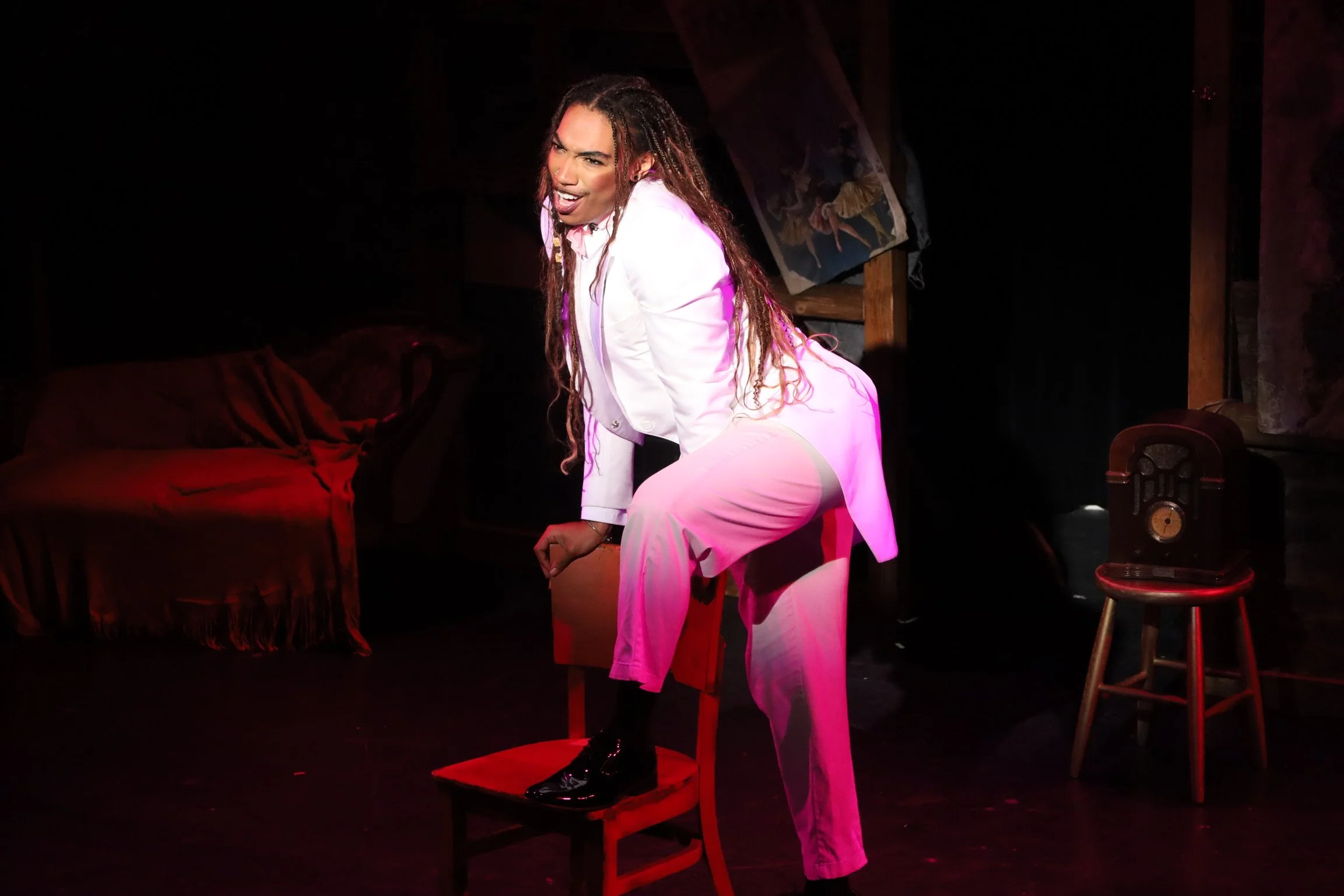
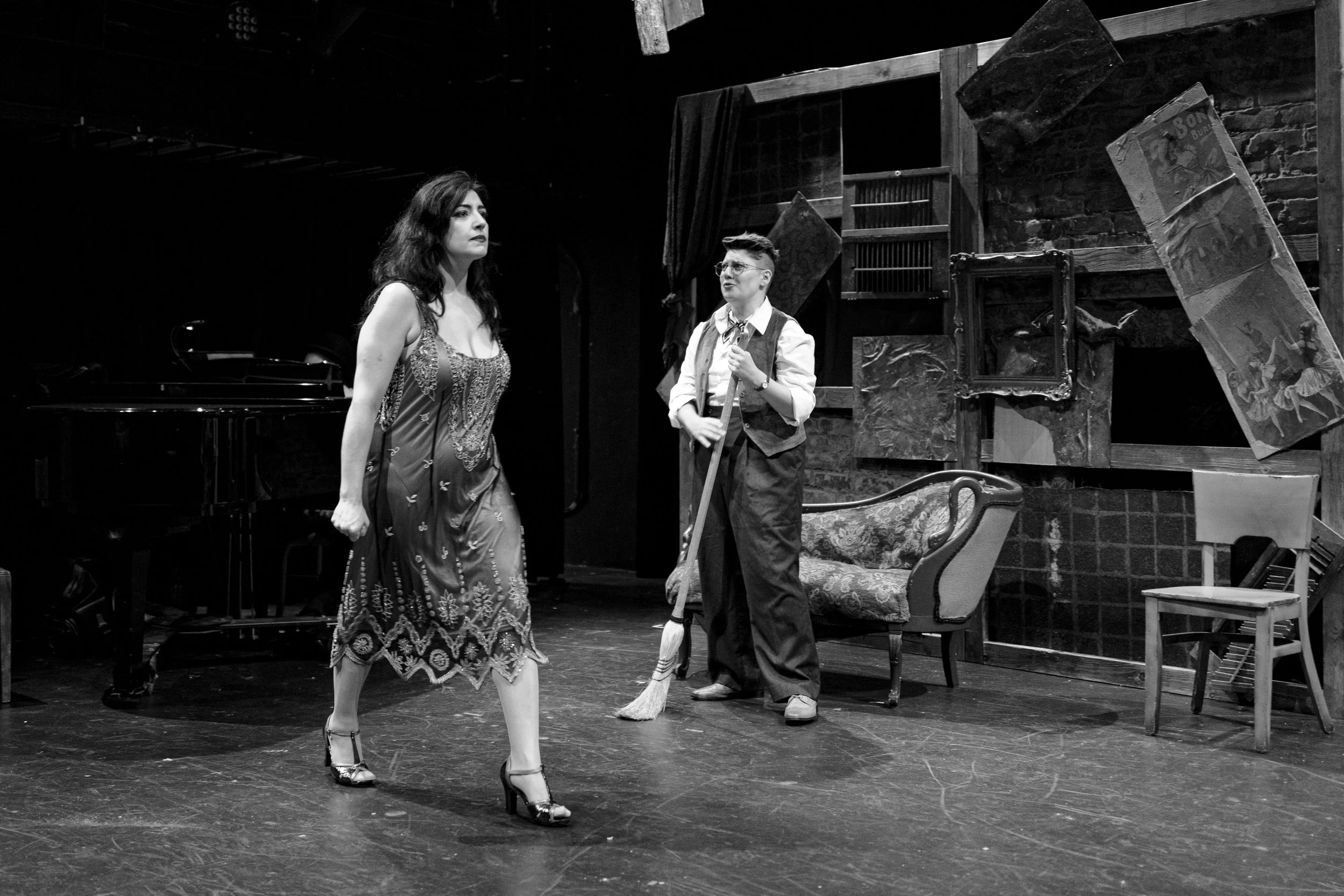
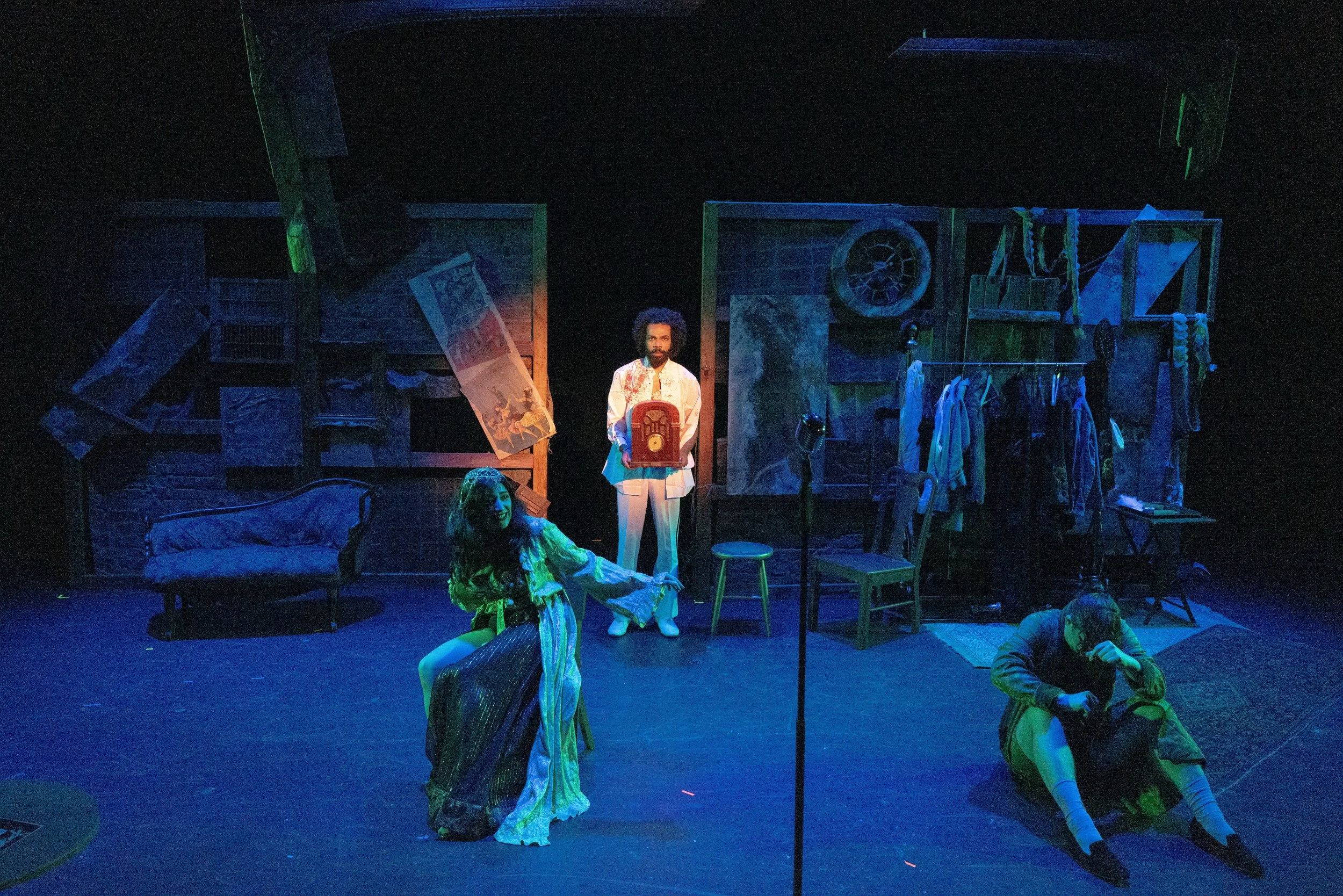
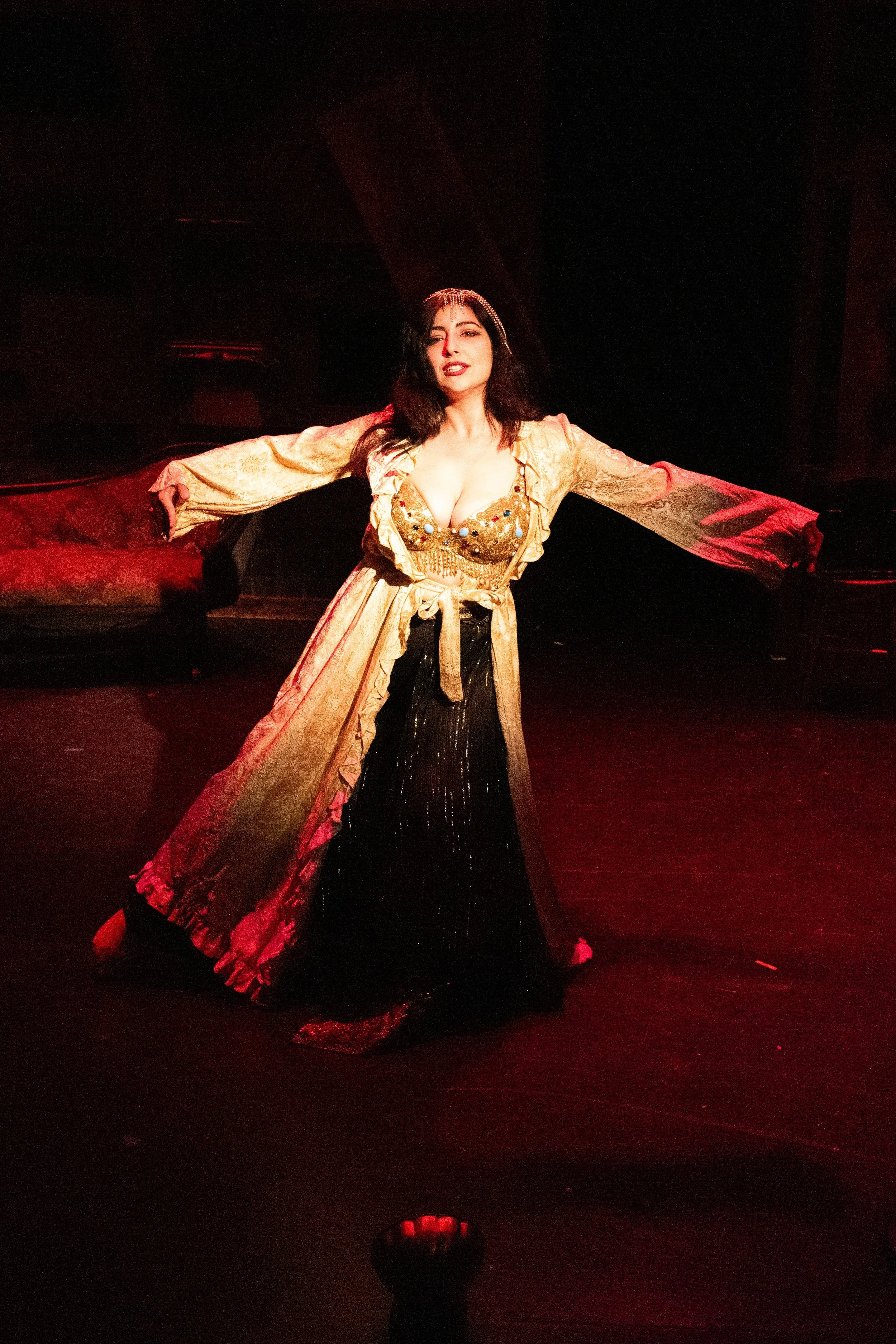
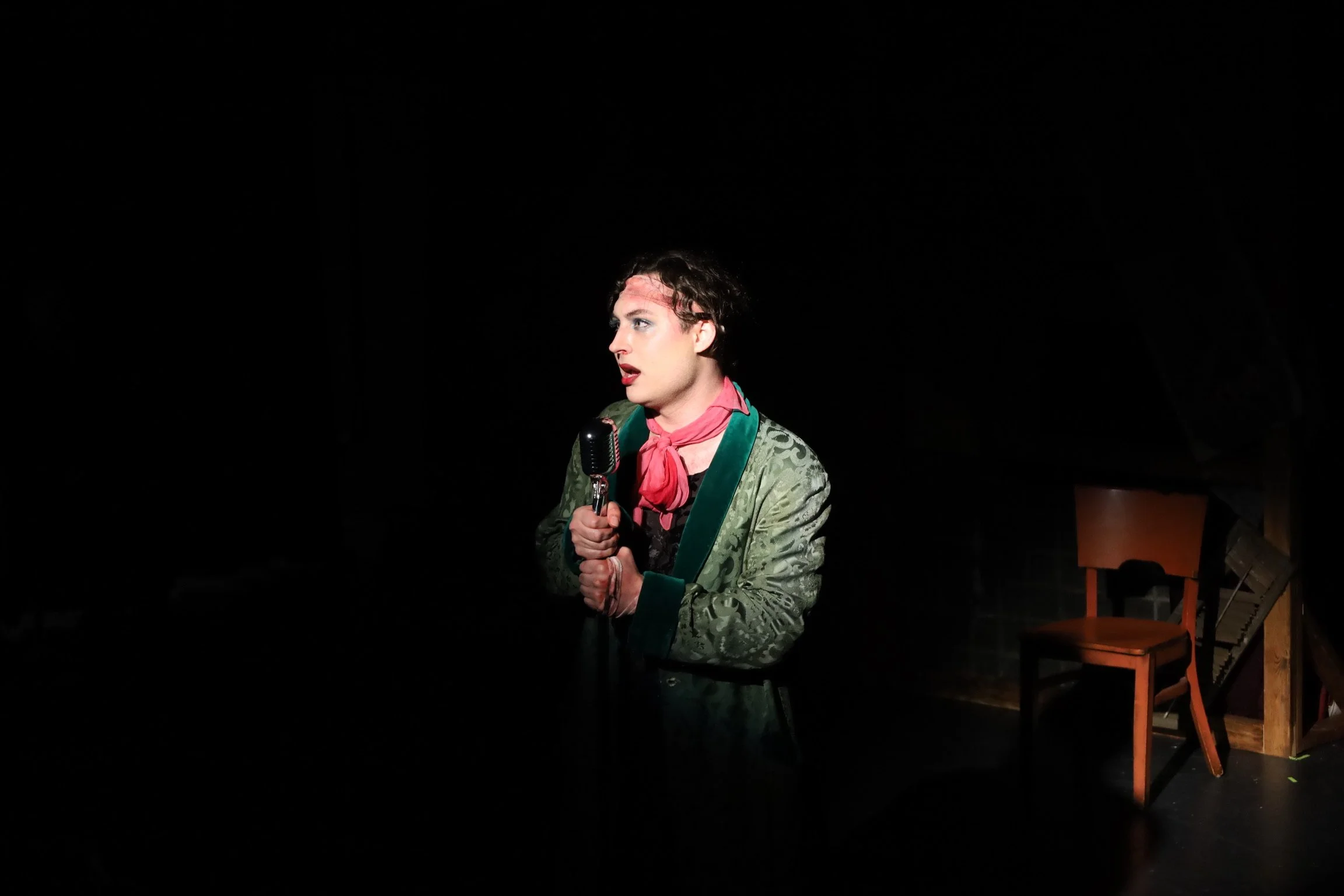


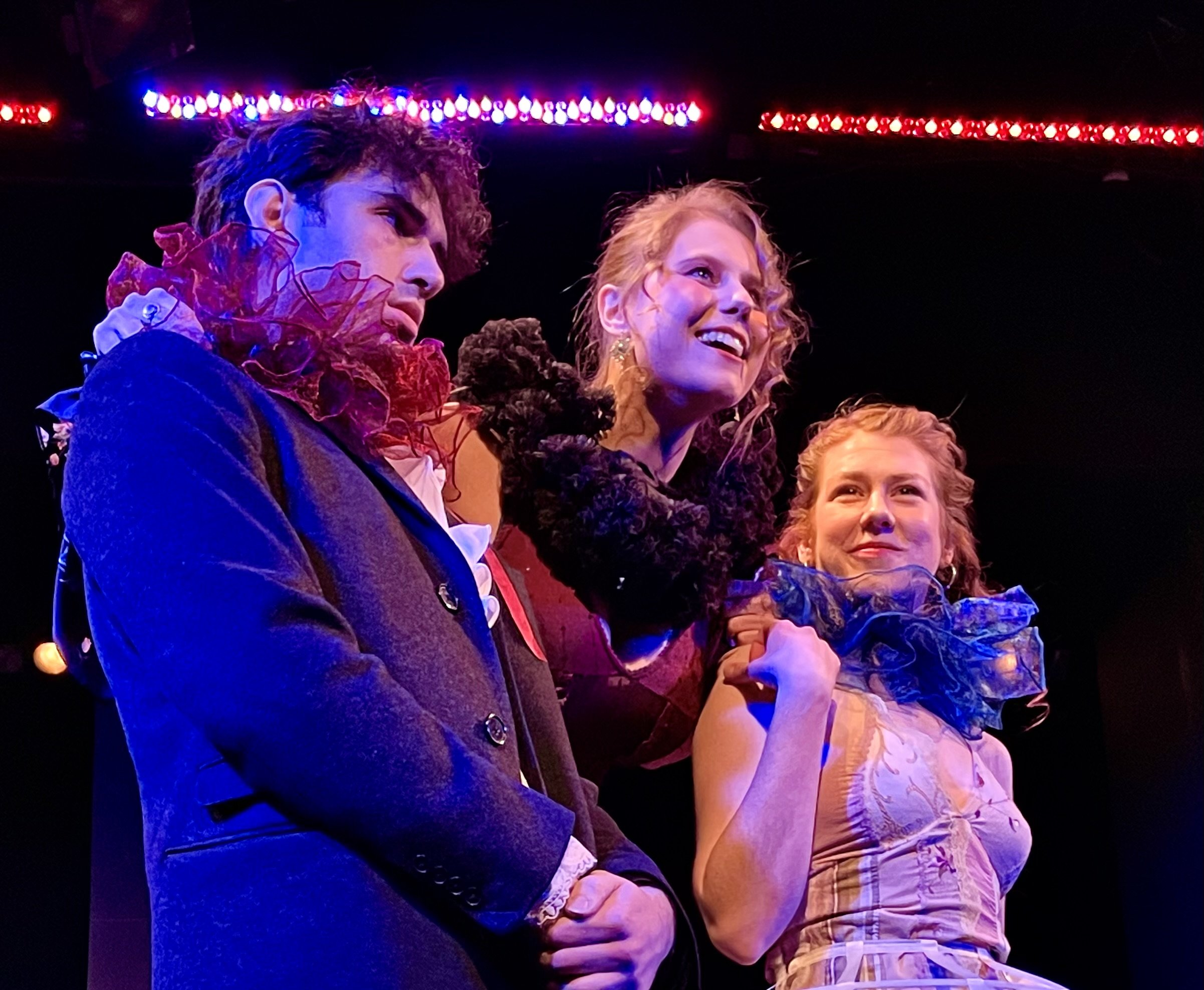


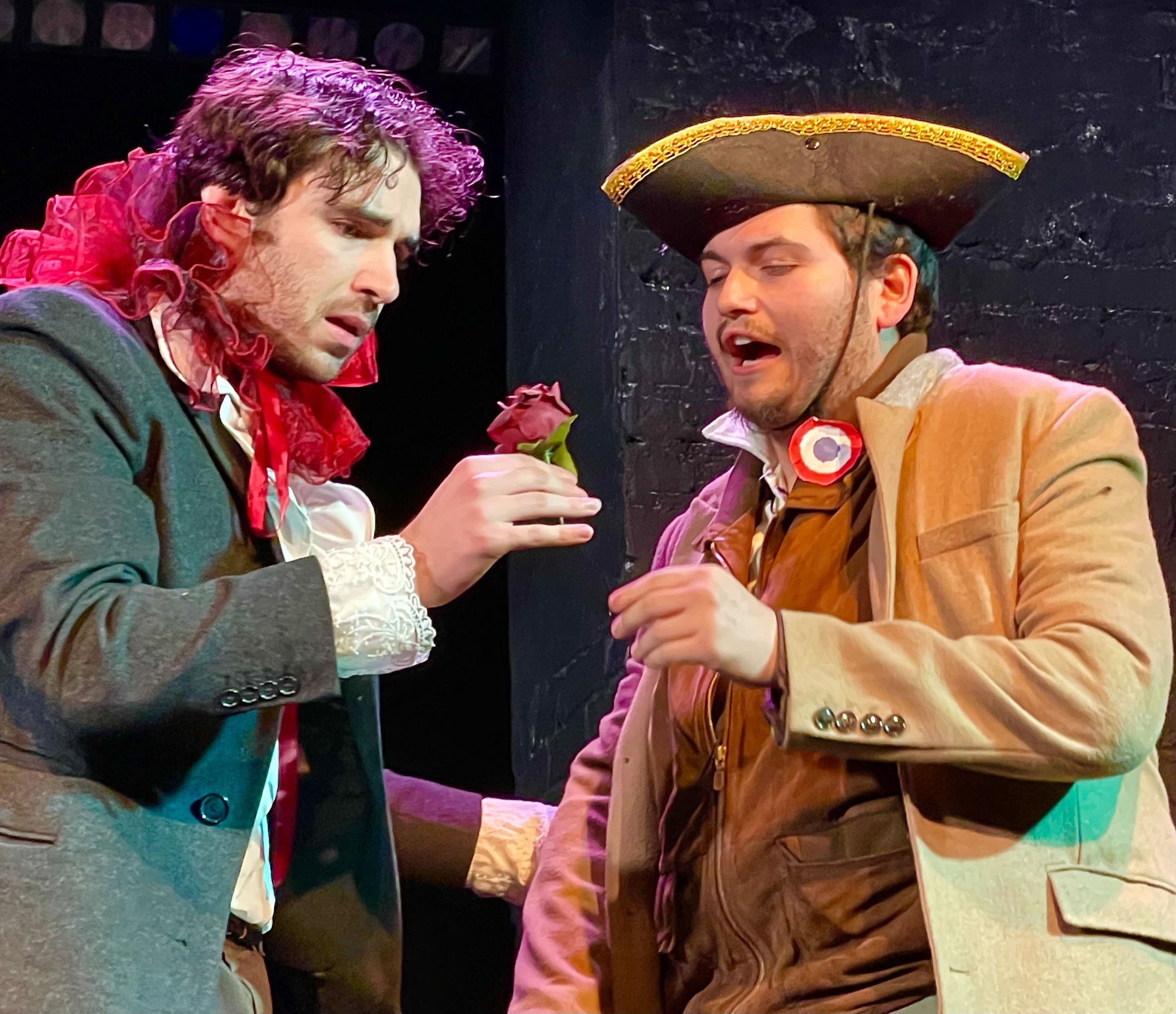
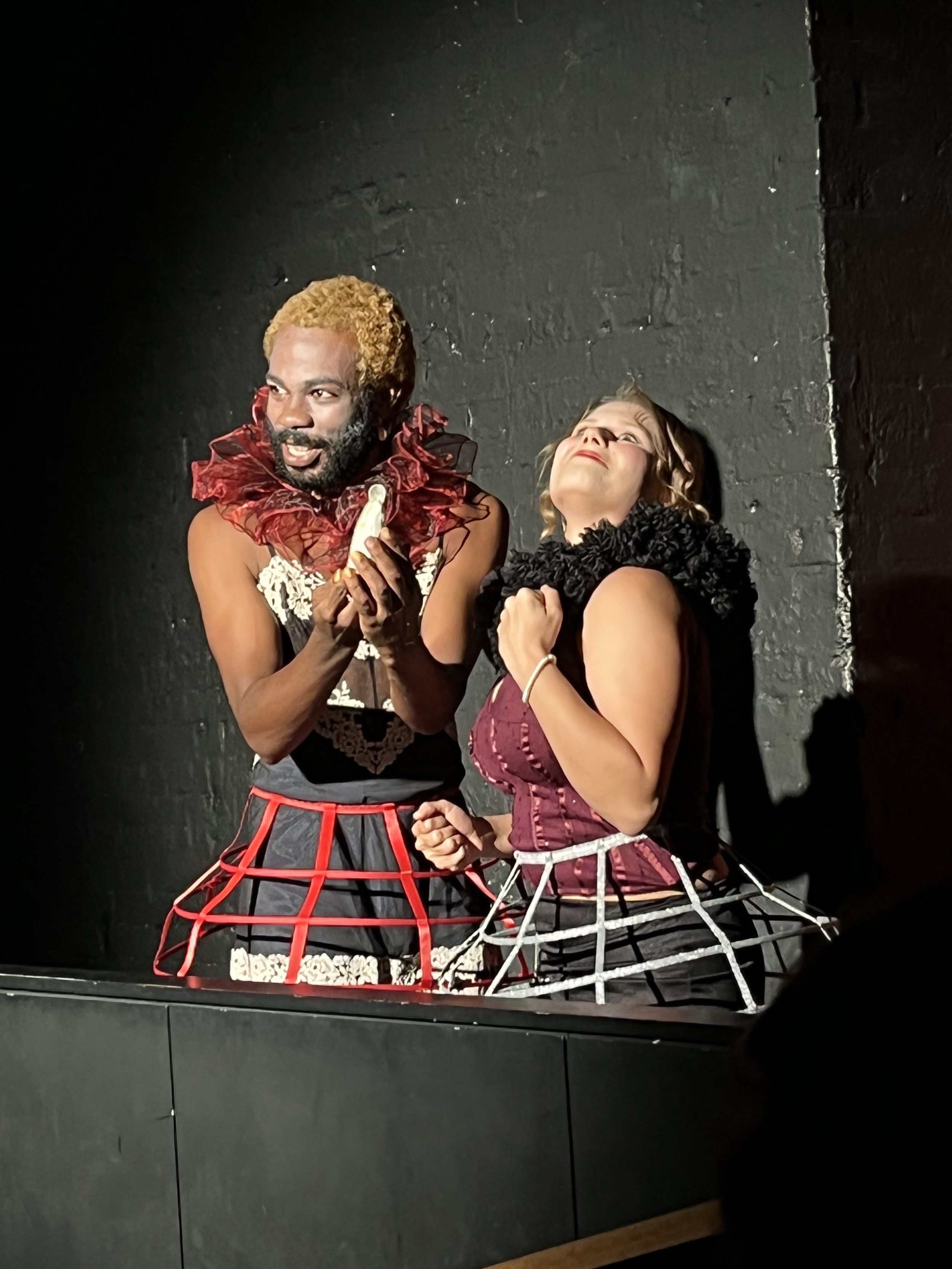

Chloé Hayat
Playwright • Dramaturg • Producer • Makeup Artist
Chloé Hayat is a Lebanese-American playwright, dramaturg, and producer. Her work has been seen and developed as a part of Noor Theatre, The SWANA Writers’ Co-Op at Playwright’s Horizons and New York Theatre Workshop, Clubbed Thumb’s Early Career Writer’s Group, Dixon Place, Space on Ryder Farm, The Flea, The Fled Collective, Theater Accident, Ithaca College, Manhattan Film Institute, Young Playwrights Inc., and SUNY Purchase.
She has stage managed and assisted hundreds of readings, workshops, and productions at New Dramatists, Clubbed Thumb, The Brick, SUNY Purchase, The Flea, Noor Theatre, La Mama, and the Howland Cultural Center.
She currently serves as the Administrative Director of the SWANA Writers’ Co-Op at New York Theatre Workshop.
She’s also a professional makeup artist, an amateur baker, and an aspiring burlesque performer.
To learn more about Chloé, listen to her chat with the Fled Collective’s Kristan Seemel (2022) about "Madame Couché's Hot Tarts End the French Revolution,” her inspirations, early dildos, lost history and Les Miz.
To learn more about Chloé’s path to playwriting, her favorite kinds of theater, and her endless list of theatrical loves of her life, read her interview with Adam Szymkowicz (2020)!
Or, if you want to read more about her very first play at 15 (titled after a popular Nirvana song), her favorite aspects of makeup artistry, and a very clear description of her artistic obsessions and aesthetics, read her interview with Kevin Russell Poole at Breaking & Entering Theater Collective (2021)!
Chloé speaking on the SWANA Writers’ Co-Op discussion panel following Noor Theatre’s Highlight Reading Series with Gamal ElSawah and Monna Sabouri.
On Style and Theme
I am interested in making theater that highlights authentic representations of women, queer people, Arab women, and queer Arab women. I am excited about making work that centers around people dealing with trauma. I care about generating opportunities for actors and other theater artists from marginalized communities. I love working with collaborative groups of artists, especially other artists who have unique perspectives on gender, race, and sexuality. I use spectacle and theatricality to physically represent my experience with gender, sexuality, race, and trauma. My goal is to make those experiences understandable in an entertaining and tangible way. I also love using spectacle and theatricality to draw audiences deeper into the story. I believe that theater should always have an element of entertainment to it; If I’m going to expect an audience sit down and experience a story, I want them to have an engaging experience. Recently, I’ve been particularly interested in engaging all five senses during a show to bring a playworld to life, and I intend to incorporate that more into my work going forward. I draw most of my inspiration from history, both recent and distant. I am fascinated with the rediscovery, redefining, and rerecording of history, since the recording of history can be and has been a tool of colonizers, oppressors, and invaders. There are stories and legacies left in the rubble that I’m excited to dig up and piece back together. I’m interested in who gets written out of history and how to bring those stories back to life. I am excited about making history compelling to a modern audience through dialogue and spectacle to recall lost stories.
I often use found text in my work, taken from documents that I want to make sense of. I’ve used court transcripts, newspaper headlines from 1865, radio broadcasts from 1937, Egyptian hieroglyphics, voicemails, women’s behavior guides from 1555, men’s dating manuals from 1971, Victorian medical journals, dialogue from ghost hunting reality shows, Egyptian hieroglyphics, dialogue from ghost hunting reality shows, journals belonging to queer Lebanese Princesses and Victorian doctors, brothel menus from the French Revolution, and song titles and lyrics- an eclectic mix of Ma Rainey, Freddie Mercury, Lucille Bogan, Green Day, Poison, Joan Baez, Gene Malin, Nirvana, Jimmy Hendrix, and Civil War battle hymns throughout the years.
The Star of Lennox workshop production at Ithaca College


